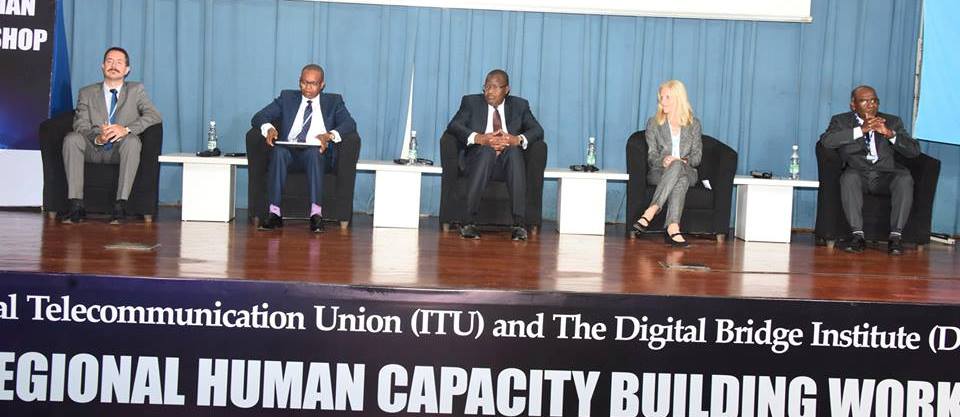The International Telecommunications Union (ITU)’s regional workshop for capacity building, organized by the Digital Bridge Institute (DBI), the training arm of the Nigerian Communications Commission (NCC)in Abuja, couldn’t have come at any other right time.
The 3-day workshop with the theme ‘Strengthening Capacities in Internet Governance in Africa’ came at a time when the Nigerian government through the telecom regulator, NCC is targeting digital ecosystem that would help to explore the country’s ICT potentials and ultimately propmote growth across all sectors of the economy.
The workshop will help to strengthen the human capacity profile in the African region, which remains one of the fulcrum of the International Telecommunications Union (ITU) yearly regional workshop.
Declaring the workshop open yesterday, the Executive Vice Chairman of NCC, Professor Umar Garba Danbatta seeks from stakeholder recommendations that will target elements of the digital ecosystem.
These elements, according to him include enabling policies and institutions for ICT growth, institutional change for more impact in the ICT Industry, and recommendations for the right communications and broadband infrastructure to improve internet access, speed and volume.
“We are noticing a massive increase in data usage, and it is on the basis of these subscriptions that internet access can be acquired, so it is very important that recommendations targeting the improvement in broadband infrastructure are made so that we reach the maximum target of 30% broadband penetration by the end of 2018, as we have already reached the 20% minimum target,” he urged.
The Administrator of the Digital Bridge Institute, Dr Ike Adinde, reiterated that the workshop is to discuss Africa’s concerns about human capacity building in ICT and focus discussions on the future of skills and knowledge in order to seek changes in the African landscape in this era of connected economy.
Hear him “digital literacy in the 21st century has become as important as the ability to read and write and governments in Africa ought to launch an aggressive intervention into the ICT industry by investing in skills development to stimulate economic growth and tame the rising tide of youth joblessness and associated insecurity in the region”.




